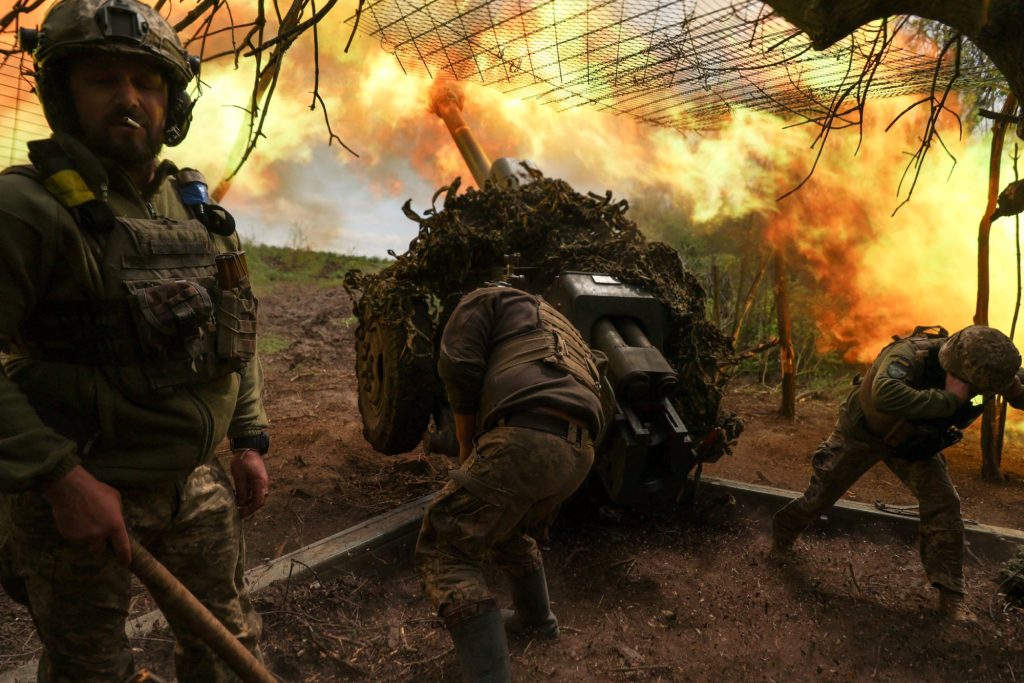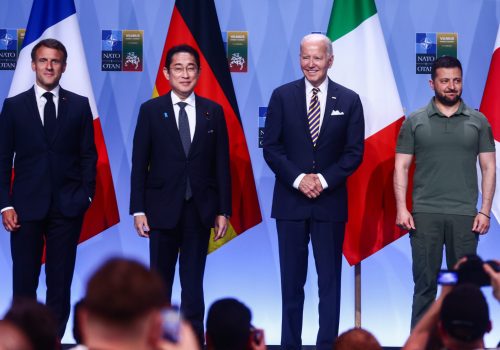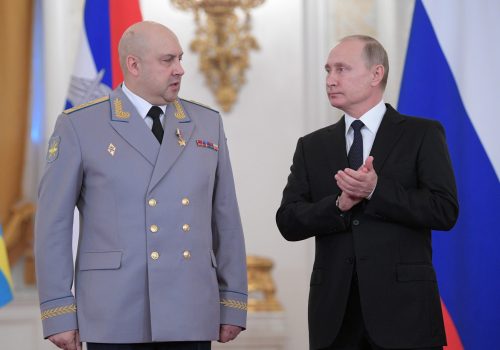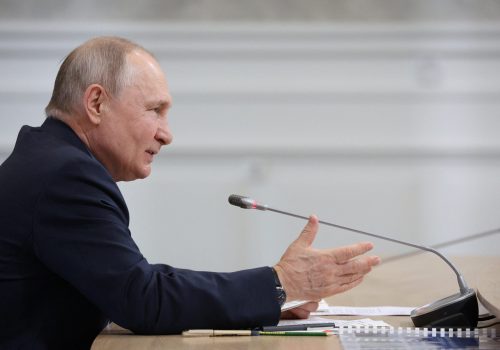Sweden is poised to become the thirty-second member of the NATO Alliance and Russia does not appear to be at all concerned by the prospect. The breakthrough moment for the Swedes came ahead of last week’s NATO summit in Vilnius, when Turkish President Recep Tayyip Erdogan agreed to end months of opposition and back the Scandinavian nation’s bid to join the Alliance. Russia’s response to Sweden’s imminent NATO accession has been muted to say the least, with Foreign Minister Sergei Lavrov limiting himself to promises of “appropriate measures” and Kremlin spokesman Dmitry Peskov warning about unspecified “negative consequences.”
This apparent lack of concern mirrors the Kremlin position over Finland’s NATO membership, which was confirmed in April 2023. On that occasion, Russia also downplayed the significance of the news while making vague commitments to strengthen its own military posture in the region. Indeed, in the fourteen months since the two Nordic nations first announced their intention to join the Alliance, Moscow has done almost nothing to protest or obstruct this process, despite having a vast array of military, cyber, economic, informational, and diplomatic tools at its disposal. If Putin genuinely believed the NATO Alliance posed a security threat to the Russian Federation, he would at the very least have increased the Russian military presence close to the Finnish border. Instead, Russia reportedly reduced its troop deployments in the region by approximately 80%. These are obviously not the actions of a nation under siege.
Stay updated
As the world watches the Russian invasion of Ukraine unfold, UkraineAlert delivers the best Atlantic Council expert insight and analysis on Ukraine twice a week directly to your inbox.
Russia’s remarkably relaxed reaction to the NATO accession of Finland and Sweden stands in stark contrast to the hysteria over Ukraine’s far less substantial ties to the military alliance. In the months leading up to Russia’s February 2022 full-scale invasion of Ukraine, Putin and other Kremlin leaders told the world that the escalating crisis was due to years of provocative NATO expansion, while warning that deepening ties between the Alliance and Ukraine represented a red line. In reality, however, Ukraine in early 2022 was not even remotely close to joining NATO. Far from pursuing Ukraine, the Alliance had repeatedly sidestepped appeals from Kyiv for a Membership Action Plan, refusing to offer even a clear signal regarding future accession. On the eve of Russia’s invasion, the most optimistic forecasts indicated that Ukraine’s dream of joining NATO was still decades away.
It is hard to see any military logic behind the dramatically different Russian reactions to NATO’s Nordic enlargement and the Alliance’s involvement in Ukraine. After all, while a theoretical future NATO presence inside Ukraine could pose a range of major headaches for military planners in Moscow, the recent accession of Finland has already doubled the length of Russia’s shared border with the Alliance overnight. Swedish membership will arguably be even more consequential for Russia, transforming the Baltic Sea into a NATO lake. If Russia is so apparently unconcerned by these very real military challenges, why was Putin prepared to launch the biggest European war since World War II over the far more distant prospect of Ukrainian NATO membership?
It is clear from Putin’s own actions that he understands perfectly well NATO will never attack Russia. This should come as no surprise. Indeed, the entire notion of NATO invading Russia is recognized as absurd by all but the terminally swivel-eyed. This does not mean Russian objections to NATO’s post-1991 enlargement are entirely insincere; on the contrary, the growing presence of the Alliance in the former Eastern Bloc over the past thirty years is perhaps the leading source of geopolitical bitterness and resentment throughout the Russian establishment. However, it is critical to clarify that this indignation has nothing to do with legitimate security concerns. NATO is not a threat to Russian security; NATO is a threat to Russian foreign policy because it prevents Russia from bullying its neighbors. In other words, NATO enlargement is no more or less provocative than a burglar alarm is to a thief.
Eurasia Center events

None of this has prevented Putin from using the NATO issue as a smokescreen for his imperial ambitions. For years, he has skillfully exploited anti-Western sentiment and widespread international suspicion of US foreign policy to distract from Russia’s own acts of international aggression. This tactic has proved remarkably successful; in the seventeen months since Russian troops began the full-scale invasion of Ukraine, a wide range of academics, commentators, and politicians around the world have all echoed Putin in blaming NATO for provoking the war. They have continued to do so even as Putin himself has compared his invasion to the imperial conquests of eighteenth-century Russian Czar Peter the Great.
The fact that so many prominent personalities remain ready to accept Russia’s dishonest NATO narrative is evidence of fundamental misconceptions regarding the role of the Alliance and the nature of its post-Cold War enlargement. NATO is routinely depicted by critics as an expansionist military institution seeking to impose Western dominance, but this is entirely at odds with the growth of the Alliance over the past three decades. Nobody has ever been forced to join NATO; instead, every single new member since 1991 has asked for membership and has been obliged to meet a series of strict standards in order to qualify. Indeed, the loaded term “NATO expansion” may itself be misleading, as unlike Russia, the Alliance only ever expands on a voluntary basis. It is also worth underlining that while Putin plays the victim card and complains of being encircled, fear of Russian aggression has been by far the leading cause of all new membership applications.
With Russia’s invasion of Ukraine now approaching the one-and-a-half-year mark, it is time to retire the NATO narrative. Putin has demonstrated that he is not at all threatened by the growing presence of the Alliance on Russia’s northwestern border, and is increasingly open about his imperial agenda in Ukraine. It is this Russian imperialism that poses a grave threat to international security, not the defensive guarantees offered by NATO.
Peter Dickinson is editor of the Atlantic Council’s UkraineAlert service.
Further reading
The views expressed in UkraineAlert are solely those of the authors and do not necessarily reflect the views of the Atlantic Council, its staff, or its supporters.

The Eurasia Center’s mission is to enhance transatlantic cooperation in promoting stability, democratic values and prosperity in Eurasia, from Eastern Europe and Turkey in the West to the Caucasus, Russia and Central Asia in the East.
Follow us on social media
and support our work
Image: Ukrainian servicemen of the 10th Mountain Assault Brigade 'Edelweiss' fire a D-30 howitzer towards Russian troops at a position in a front line, amid Russia’s attack on Ukraine, near the town of Soledar, Donetsk region, Ukraine May 6, 2023. (REUTERS/Sofiia Gatilova)




